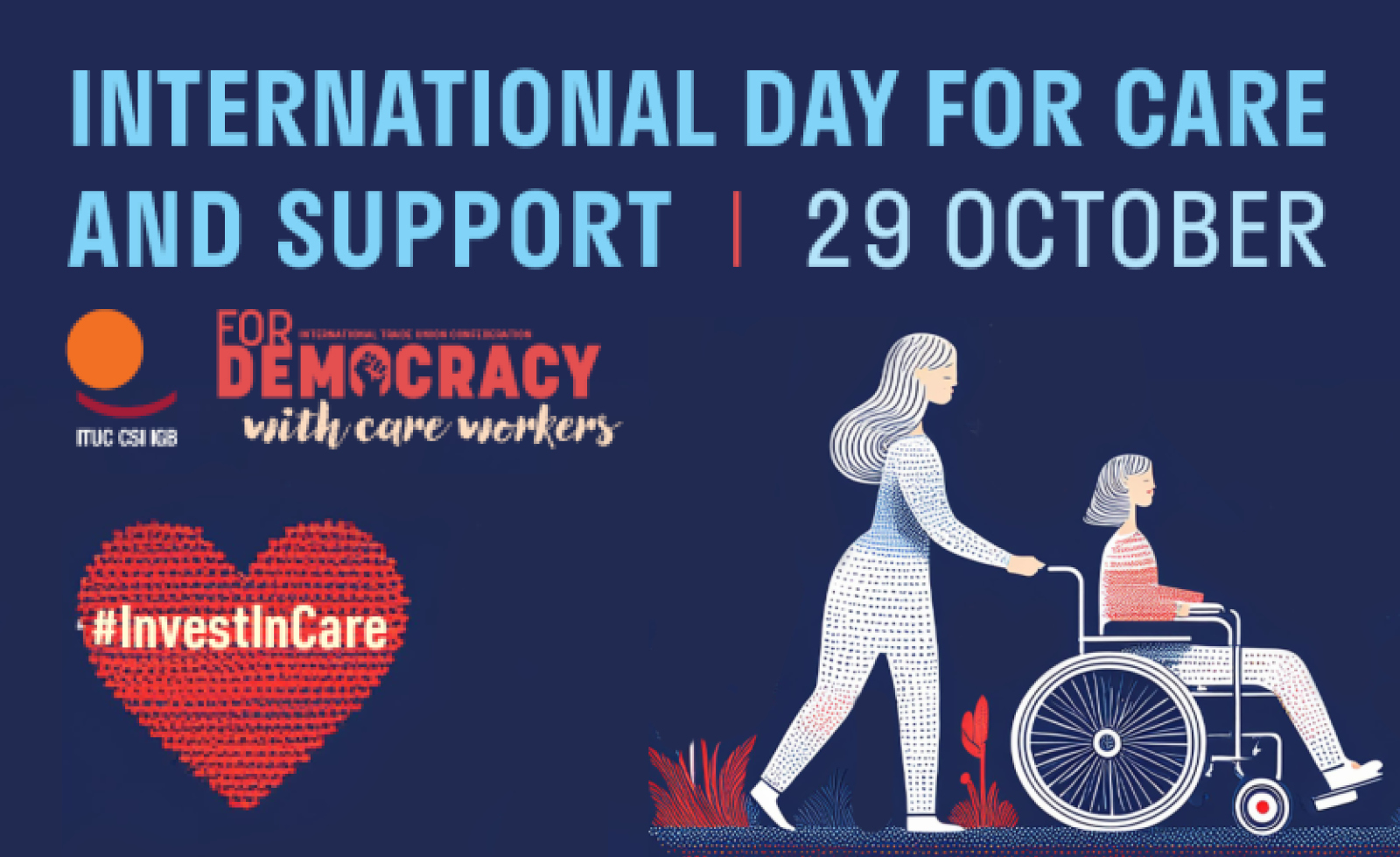
This stark gender discrepancy highlights the disproportionate role that women take on in child-rearing, care, and support for persons with disabilities and those in need of long-term care, housekeeping, and other care responsibilities.
Globally, around 1.6 billion women and 800 million men are outside the labour force, with 45 per cent of these women and 5 per cent of these men citing care responsibilities as the reason for their non-participation. Among women aged 25 to 54, the proportion citing care as the reason for being outside the workforce rises to two-thirds (379 million women). Women with lower education and those in rural areas also face higher barriers to workforce participation due to care responsibilities.
The International Day for Care and Support, 29 of October, is an awareness campaign aimed at giving visibility to the importance of the care economy.
Recognising care as a right (the right to provide and receive care and to self-care) and a public good is crucial to build up inclusive societies founded on social cohesion.
This means that governments need to foster:
- Increased public investments in the care sector.
Public investments in the care economy – as part of the national governments GDP – creating million of new jobs, granting women economic participation and guaranteeing universal access to quality public health, education and care services.
- Adoption of CARE policies.
Inclusive labour market policies, family-friendly workplace policies and gender responsive social protection grant a more equitable sharing of care responsibilities and promote flexible working arrangements on a gender-neutral basis.
- Decent work for all care workers.
Care jobs need to be formal and decent, with safe working conditions, and adequately remunerated, including equal pay for work of equal value. Care workers must be free from gender-based violence and harassment, and from any type of discrimination. Care workers must be free to organize and to bargain collectively.
The ILO Resolution on Decent Work and the Care Economy, agreed by governments, employers and workers in June 2024, reaffirms the necessity for urgent action to ensure decent work in the care economy and promote decent work for all by ensuring their access to care.